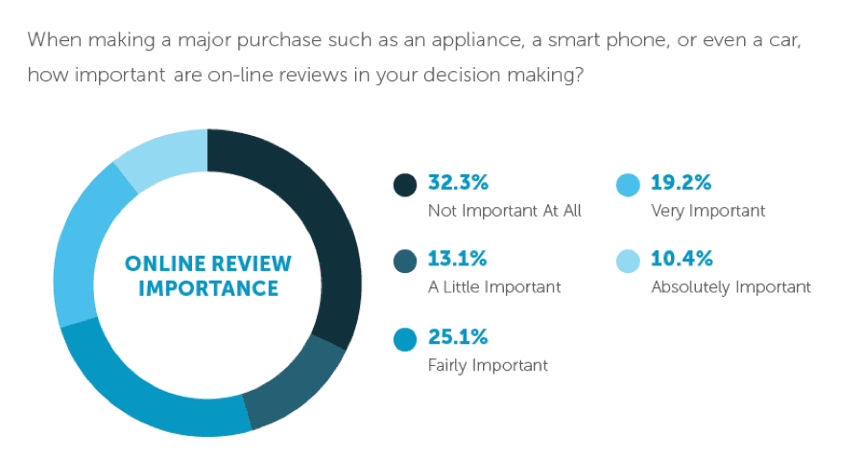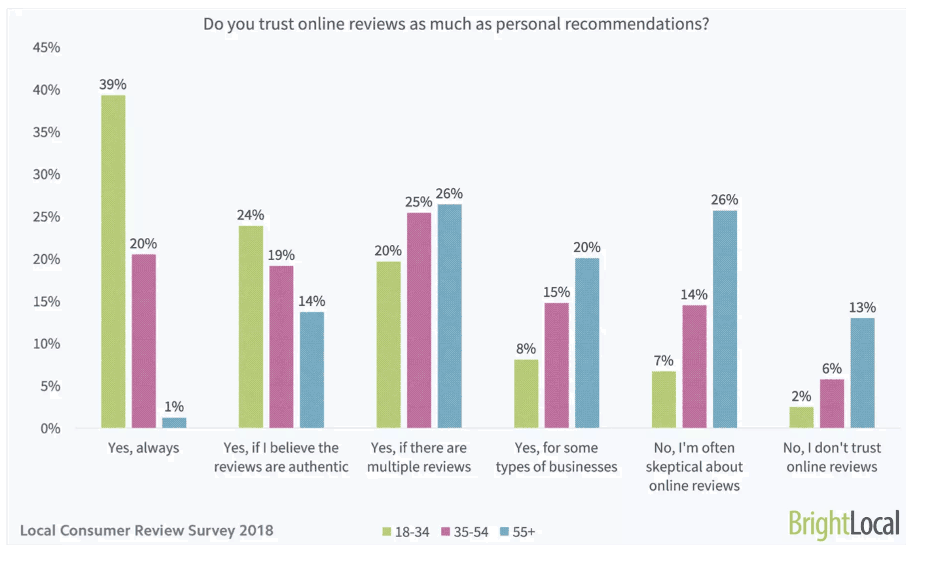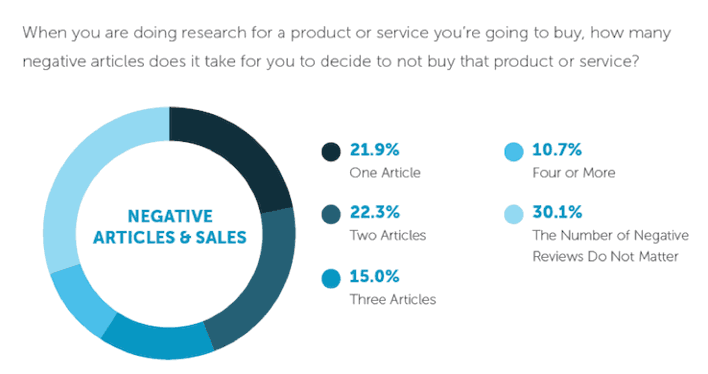Corporate Reputation – Benefits – Market Value and Trust
Ask any business executive if they think having a good corporate reputation is important and the answer will be an obvious ‘yes’. But ask them what’s involved with having a good online reputation, maintaining one, or even what a good online reputation entails, and many will stumble trying to define a clear answer. It’s important to understand the ‘what’ and ‘why’ before setting up a reputation management plan. First, let’s start with the basics.
What is corporate reputation?
Corporate reputation is the impression that significant people have about your business. The word ‘significant’ may lead you to think of potential customers or clients, but that pool of people is much larger. It includes every potential relationship your business has.
This means the best job candidates can pick and choose where they want to work. It means investors when you’re ready to grow your business to the next level. It means the community leaders in the next city that are perfect for expanding your empire.
Every human being and business that will interact with your company is significant and will, at some point, rely on your company’s reputation to decide whether or not to work with you.
What are the benefits of an excellent corporate reputation?
All economic decisions – whether by companies or consumers – involve opinions shaped by emotions and facts, and your online reputation can shape those opinions. A bad reputation sends companies or consumers elsewhere. A good reputation has tremendous benefits, not the least of which are higher market value, increased revenue, and better employees.
Higher corporate market value
The internet has been a tremendous boon to modern businesses and the people that want to interact with them. It has become the main source for people to form an opinion of your company and its value in the marketplace. The opportunity to grow a positive corporate image and reputation online can be vital to your corporation’s value and success. The Harvard Business Review found that 70 to 80% of a company’s market value comes from fuzzy metrics like brand equity or societal goodwill.
Good reviews increase sales and revenue
Online reviews are a pillar of doing business today. Whether shopping for a good phone, restaurant, or lawyer, people use reviews to find the best of their needs.
A study from Michael Luca at Harvard showed that for every increase of one star in a rating on Yelp, a business will see a 5-9% jump in revenue.
A study published by Moz investigating the impact online reviews have on buying decisions found that two-thirds of people consider online reviews important when deciding whether or not to purchase a company’s product or service.
In today’s business landscape, online reviews are just as important as word-of-mouth. BrightLocal showed that 91% of consumers trust online reviews as much as they do personal ones. This is especially true of that crucial 18- to 34-year-old demographic.
A positive reputation not only helps your corporation’s image and goodwill in your sector, but it also has a direct impact on your company’s bottom line. A study from Michael Luca at Harvard showed that for every increase of one star in a rating on Yelp, a business will see a 5-9% jump in revenue.
Higher-quality recruits and employees
Job seekers rely on a company’s online reputation when making application decisions. It’s one of the most important factors when recruits evaluate a potential workplace. A good reputation makes it easier for you to recruit top applicants. That translates into a lower hiring cost and a higher quality workforce. On the other hand, a bad reputation can cost your company more money with each hire (at least 10% more, according to the Harvard Business Review). A Career Builder survey found that 71% of workers would not apply to a company with negative publicity.
Bad corporate reputation damages your business
Many companies have felt the effects of bad publicity on their bottom line. Customers, investors, and prospective employees lose trust in the company. Sales fall. Brand equity is diminished in the public’s eyes. Unless properly managed, small disasters can easily snowball, bringing a company down fast.
Bad publicity used to mean negative newspaper articles. While this still occurs, today much of the greatest danger to a corporation’s reputation can come from negative postings on social media and negative reviews online. Moz’s study found that just one negative article on the first page of a search result can lose you 22% of your potential customers. Two negative reviews more than doubles that percentage, and if you have four or more you risk losing 70% of your potential business. Put bluntly, a bad online reputation for your company means lost revenue.
How can you ruin a business’s reputation?
Intentional wrongdoing
Always do good business. It sounds obvious, but the easiest road to a bad corporate reputation is to cut corners, break laws, or otherwise act unethically. History is littered with examples of this, from Enron to Lehman Brothers.
Treating employees poorly
Customers care about how a company treats its people. Recent press on Amazon’s labor practices is painting them in a terrible light. Will this bankrupt the company? Probably not, but the idea of Amazon being a sweatshop is sealed in the public’s mind.
Bad CEO image
A study from PR firm Weber Shandwick states that 81% of executives see public engagement as crucial for a company’s reputation. The era of a CEO being a faceless entity is long gone. Those executives are now the human face of the company, so if they deliver an off-brand message, the consequences are huge. Look at the cautionary tales but aspire to the success stories.
How do you build a good reputation?
Define yourself
A company is only as good as its leadership. Before tackling the entire machine, start with your own personal business brand. What is the image you want to project as a company leader? Remember that this doesn’t just mean putting a pretty picture of yourself out there for the world to see. It’s an opportunity to fill a leadership void in your industry. People like Steve Jobs became more than a software company CEO. He was seen as someone to listen to regarding technology, innovation, and industry direction.
Treat your employees well
People remember when they hear about a great place to work (think Zappos), even if they’re not on the job market. A study published in the International Journal of Hospitality Management found that hotel employees’ reviews on Glassdoor affected customers’ perception of the business. You don’t want your company to end up on the list of worst companies to work for.
Make a plan
Be proactive and decide what you want the world to think of when they see your company name. Understand that you are responsible for constructing, maintaining, and fixing your online reputation 24/7. This is where professionals can help you create an online reputation strategy that is realistic but effective for your company.
Maintain it
A good reputation is a full-time job. This doesn’t just mean responding to criticism but actively strengthening your online brand so that your company is more resilient in the face of any crisis. This means sticking to your plan, being honest and transparent in your public communication (especially when things have gone wrong), and putting your wins out there for the world to see.
FAQs about corporate reputation
What are some advantages of having a good corporate reputation?
Some advantages of having a good, well-maintained corporate reputation are
- Better trust with your customers, investors, employees, and those you might interact with in the future.
- Increased profits. More trusting customers means more revenue.
- Good news is cheap advertising. If your company has a great reputation, people will happily spread the word for you.
- Better talent pool working for you.
- An easier time overcoming smaller reputation concerns. If your company has had a good track record, smaller crises are easier to navigate.
How can bad corporate reputation damage your company?
When your corporate reputation is damaged, the first and most obvious casualty is your customer base. It quickly will become apparent if you’re losing customers to a competitor with a better reputation. Future sales will be harder to win, as will future investors, stellar job applicants, and communities whose goodwill you’re trying to woo. That tarnishing can affect individual reputations, too: your CEO’s future success can be in trouble if they’re attached to a damaged brand.
How can you protect your digital reputation?
To avoid being reactive when things go bad online (and they will). Be proactive and make a plan for constructing, maintaining, and fixing your online presence. This means regular monitoring of what is said about your company and responding to comments – positive and negative – when it makes sense to do so. Nurture the positive so that it can do the talking for you.
All of these things take tremendous work and expertise, but luckily there’s a whole industry around reputation management. Consider hiring an online management company to do the hard work for you.
Tags: Business Reputation Repair.



